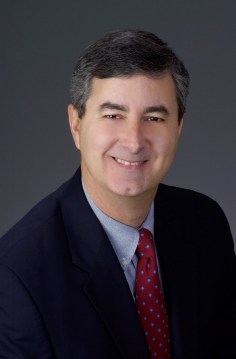
Frightening seniors about Medicare changes is often referred to as Medi-scare. But all Americans should be scared — into action. The Medicare Trustees Report projects Medicare’s hospital insurance fund will run out of money in 2024. Federal budget deficits are projected to exceed $1 trillion annually, and Standard & Poor’s recently downgraded its financial outlook for the United States. The federal government must tighten its belt.
In the coming years, 78 million baby boomers will place unprecedented demands on Medicare. And fraud is a serious problem. In 2010, federal indictments in five states revealed the largest Medicare fraud scam ever ($163 million), one that was orchestrated by an organized crime syndicate.
Medicare is popular, and changing it is risky. In 2010, as part of the health care reform law, Democrats reduced future funding for Medicare by $500 billion, and they then went on to suffer historic defeats in congressional elections. There are signs that the Republican Medicare reform plan, crafted by U.S. Rep. Paul Ryan of Wisconsin, may cause a similar voter backlash.
Politicians of both parties like to talk about eliminating “waste, fraud and abuse” in federal programs. But in the case of Medicare, it actually seems reasonable to attack fraud before reducing benefits, increasing taxes or making drastic changes.
Margaret Thatcher once said, “First you need to win the argument, then you win the votes.” Neither Republicans nor Democrats seem to be following the famed British leader’s advice.
Republican presidential candidate Newt Gingrich appeared to be attacking the “Ryan Plan” when he stated that “right-wing social engineering” is no better than “left-wing social engineering.” But Gingrich, a student of Thatcher’s policies, was trying to encourage a bipartisan national conversation on Medicare reform. Though he may have expressed his views inartfully, he meant that neither side should impose a solution. He views the Ryan Plan not as a final answer but as a courageous start.
So what can we add to the conversation? Here are ideas — some that have barely been mentioned to the American public — that could be part of broader reform:
(1) Eliminating fraud
(2) Removing the 150-day limit on hospital stays
(3) Providing a maximum out-of-pocket level for physician services
(4) Allowing Medicare Health Savings Accounts (HSAs).
Medicare savings
The current Republican proposal does not produce new Medicare savings until 2022. Eliminating fraud can produce savings of $1 trillion over the next 10 years. To stop fraud now, Sam Palmisano, CEO of IBM, has offered his company’s technology free as a public service. The savings from fraud elimination can add to the solvency of Medicare and should be partially used to modernize the program.
Medicare improvements
A great fear of the elderly is outliving their assets. Part A exposes beneficiaries to the cost of hospitalization beyond 150 days. Reform could eliminate the Part A hospital day limit. Extended hospital stays or outliers are paid using hospital charges rather than true costs. A change in the outlier reimbursement could be used as a cost offset.
Part B Medicare exposes beneficiaries to an unlimited 20 percent cost share. Employer plans typically include a limit on patient payments — called “Maximum Out-Of-Pocket” limits. Part B should have such a limit of $5,000 to $10,000 annually.
Medicare HSAs would generate savings to offset any added costs of modernizing Parts A and B. A 2009 study by the American Academy of Actuaries showed employer plans had 12 percent to 20 percent savings with HSA eligible plans. About 9.2 million Medicare beneficiaries have Medigap plans to fill the gaps in current coverage. The above improvements would minimize the need for Medigap plans – the worst insurance buy in the market.
Good policy and good politics
It will be difficult to increase Medicare at a time when the debate is about how to reduce costs, but both can be done. Sometimes doing the right thing is also good politics. The fastest-growing bloc of voters in the country are baby boomers becoming eligible for Medicare. And 40 percent to 60 percent of Tea Party members are Medicare beneficiaries. Politicians have a chance to solidify this voting group by improving Medicare as the program is being reformed.
Making improvements to Medicare, politicians can increase personal security, reduce costs, promote more private market Medicare Advantage options, and diminish the sale of Medigap plans.
Any reform that makes Medicare financially viable will need broad public support. The problems are huge and daunting. Boomers and generations beyond will demand a new model of Medicare that reflects their needs. Constructive, honest discussions can move us past Medi-scare and into an era of creative solutions, if only we listen to Margaret Thatcher.
Ronald E. Bachman is president and CEO of Healthcare Visions, a firm dedicated to advancing ideas and policy initiatives that are transforming the U.S. health care market. Bachman is also a Senior Fellow of the Center for Health Transformation (CHT), the Georgia Public Policy Foundation (GPPF), the National Center for Policy Analysis (NCPA), and at the Wye River Group on Health. Mr. Bachman is an actuary with extensive experience in health care strategy for payers, providers and employers, and is a retired partner from PricewaterhouseCoopers.
